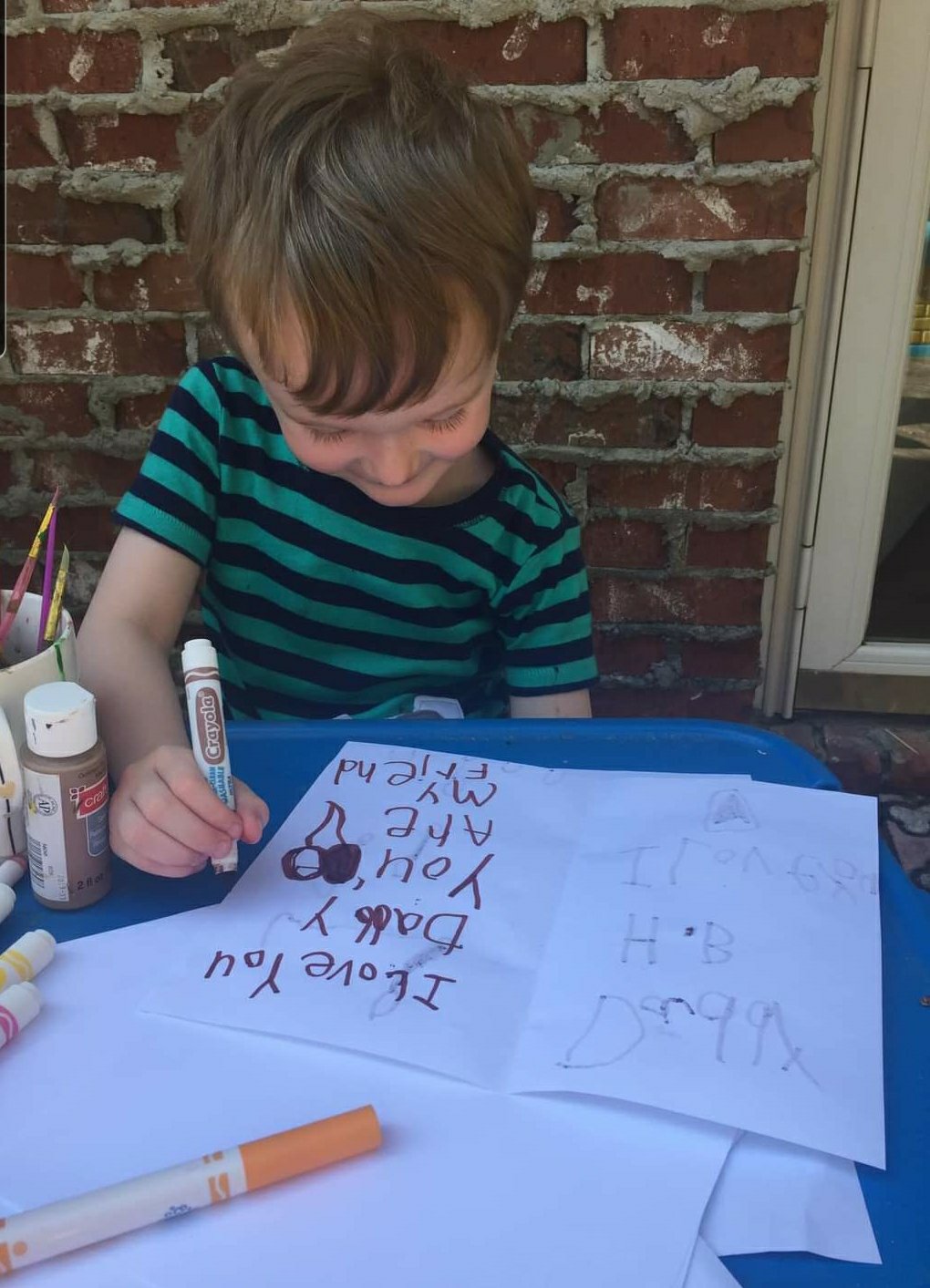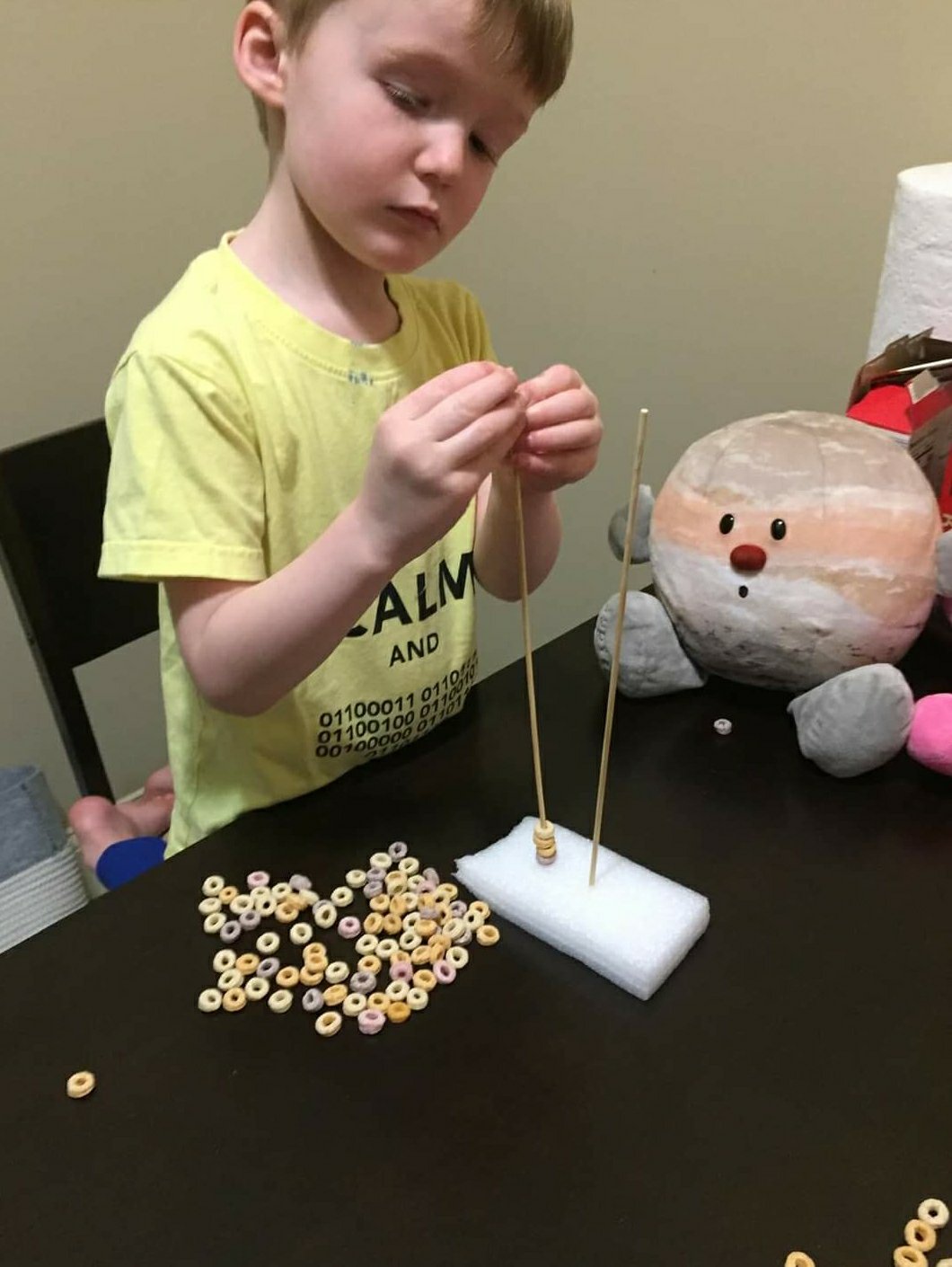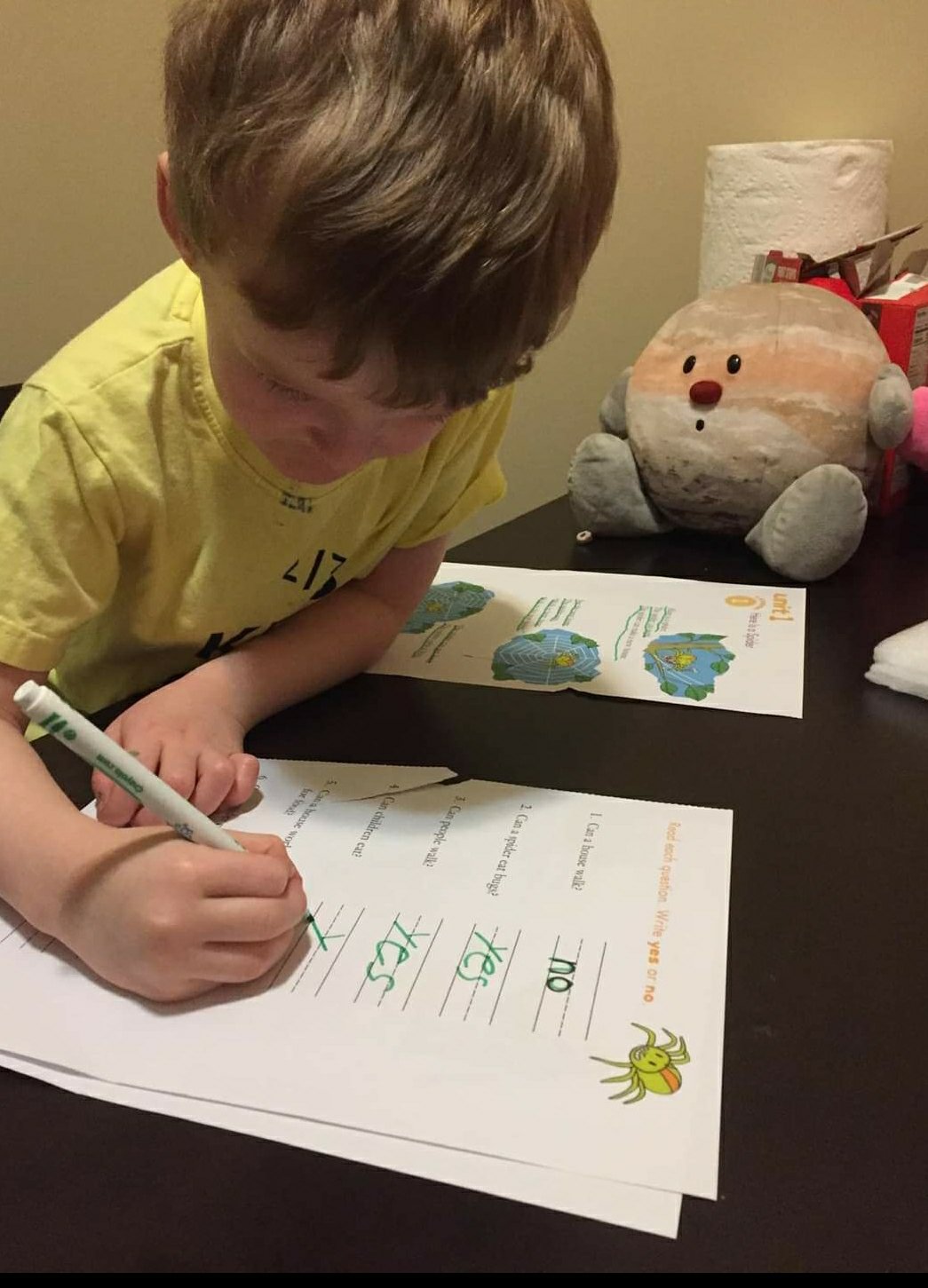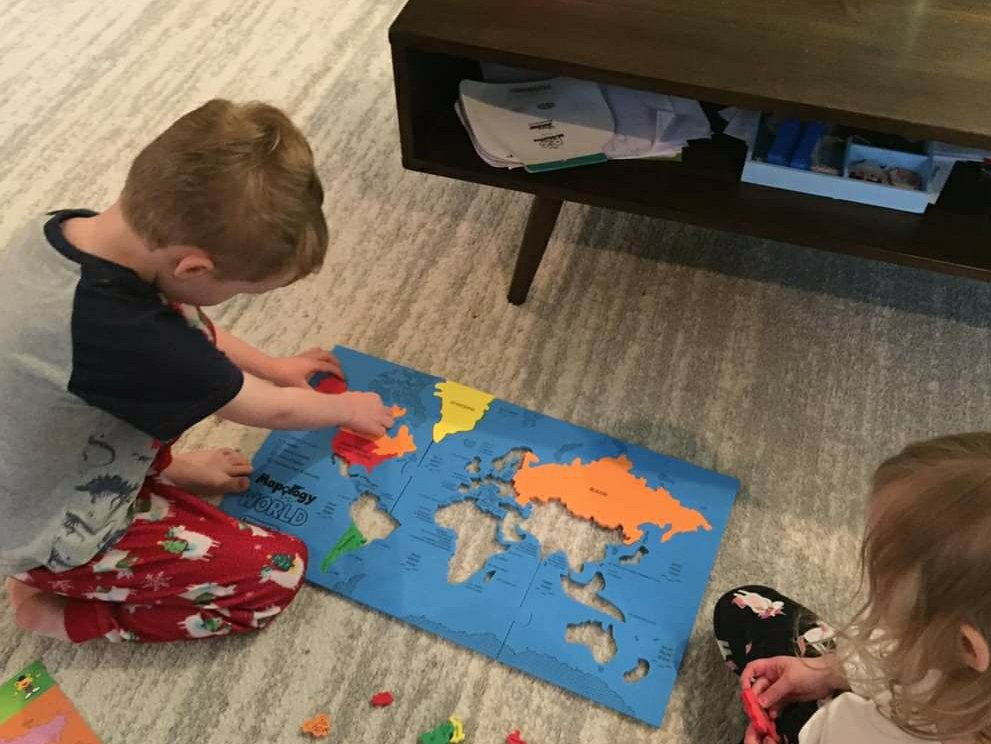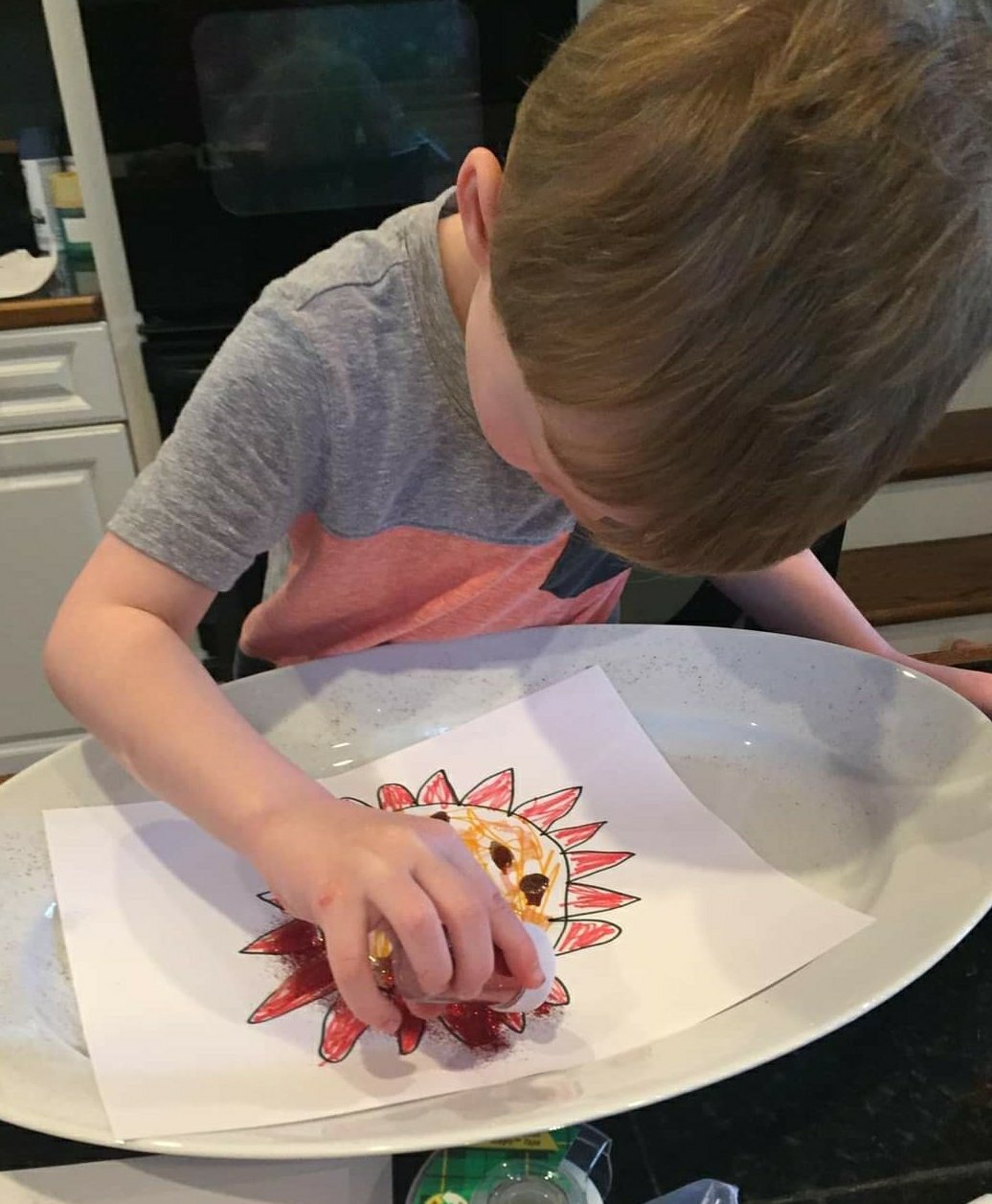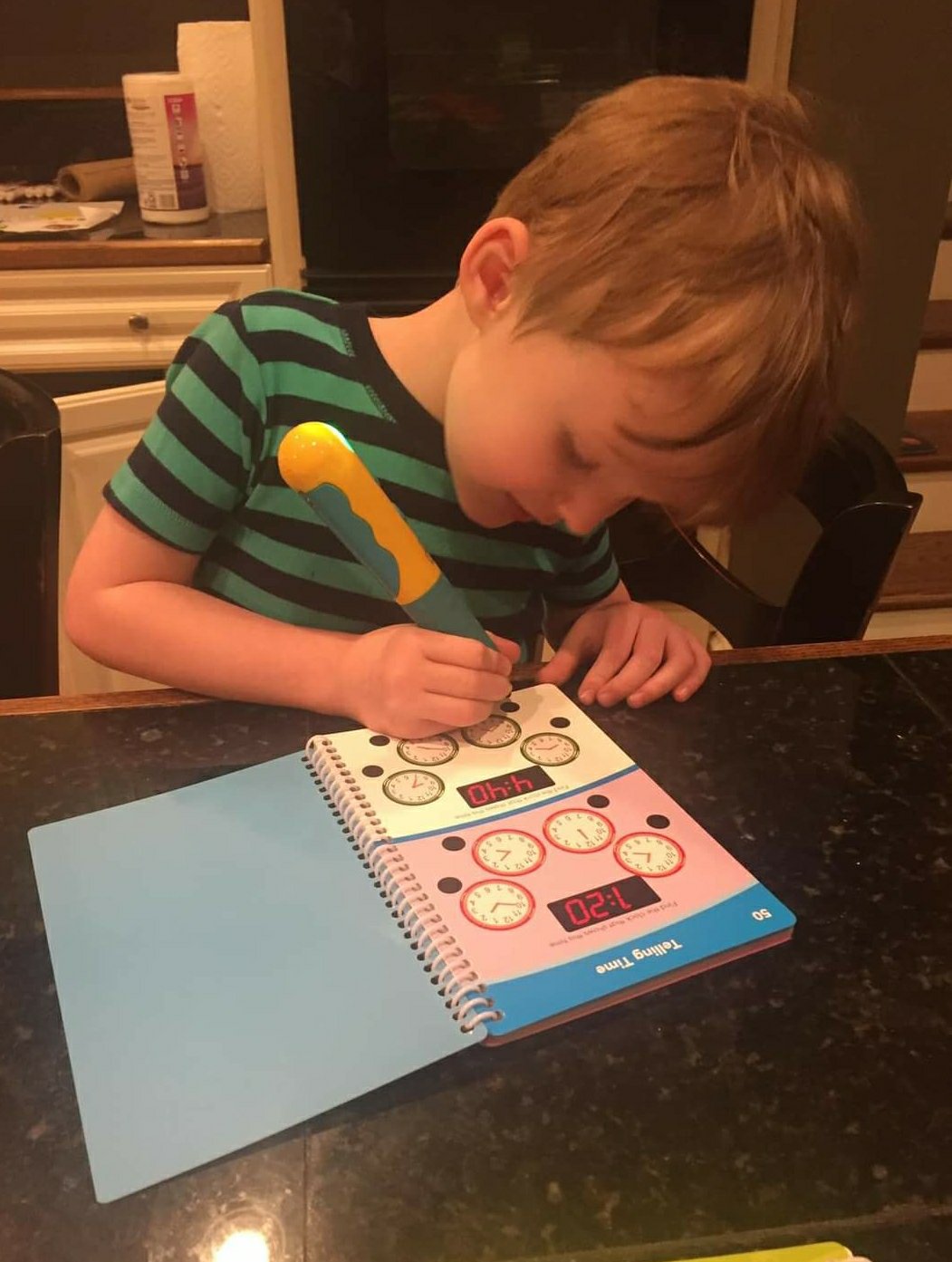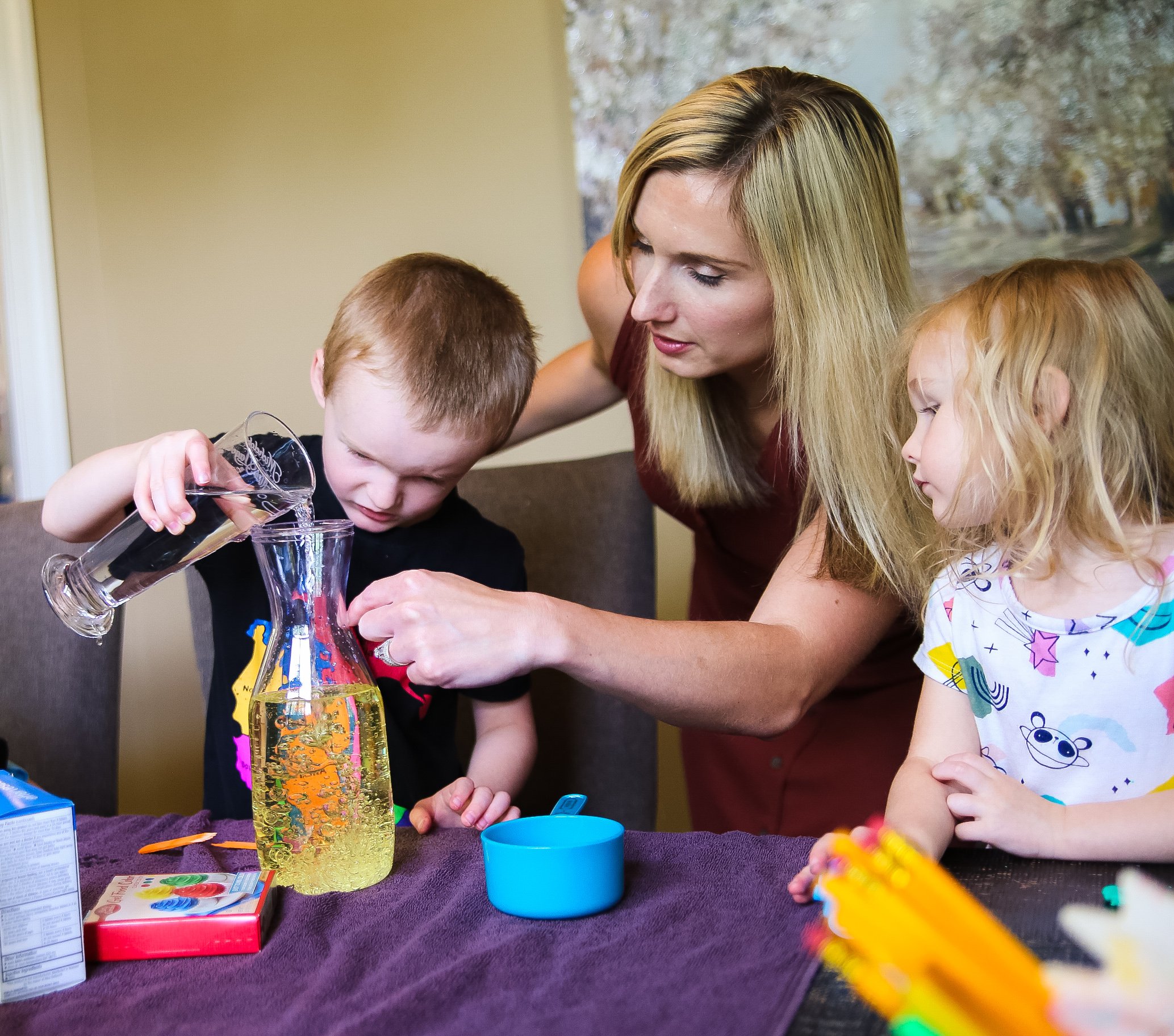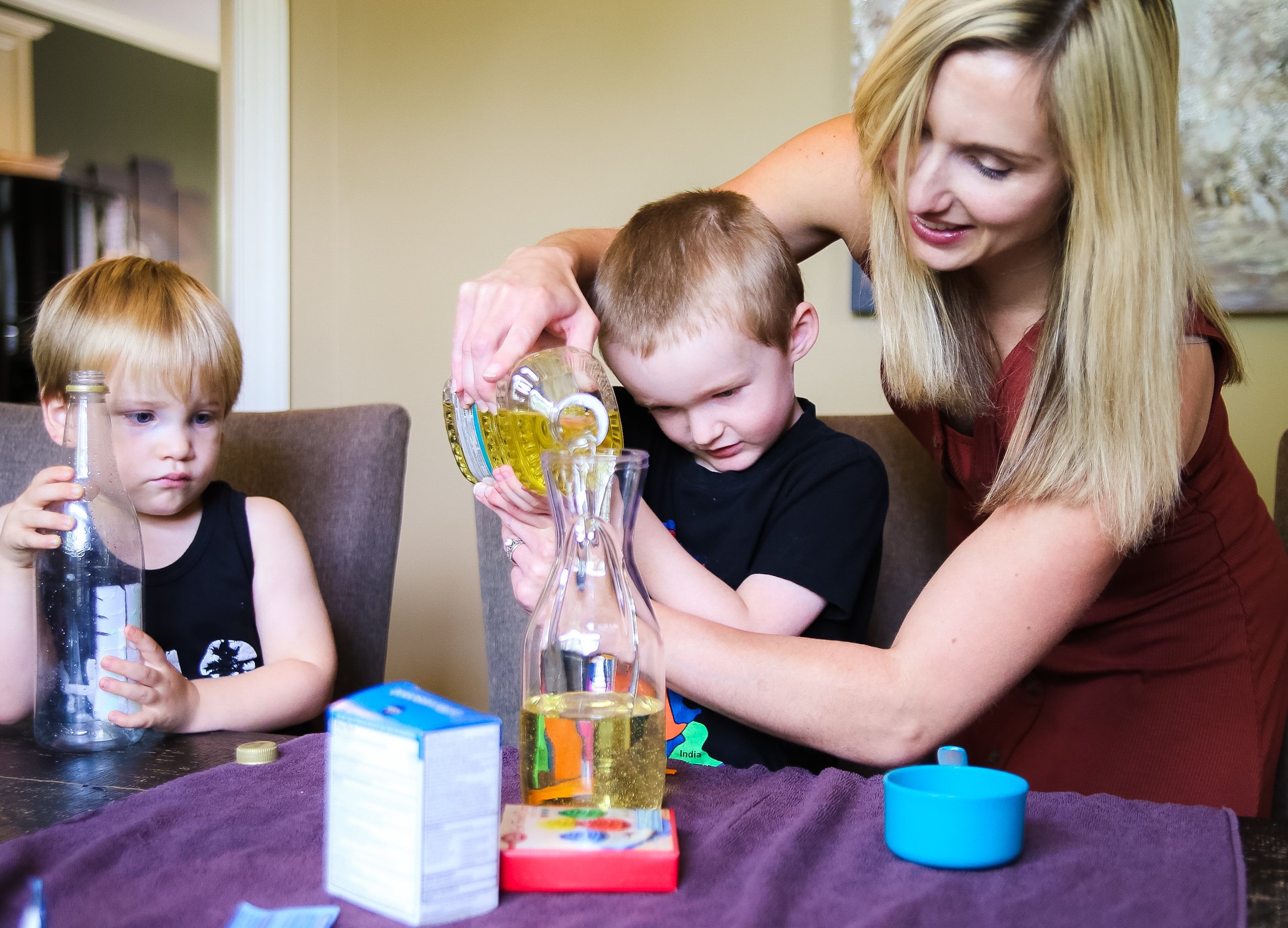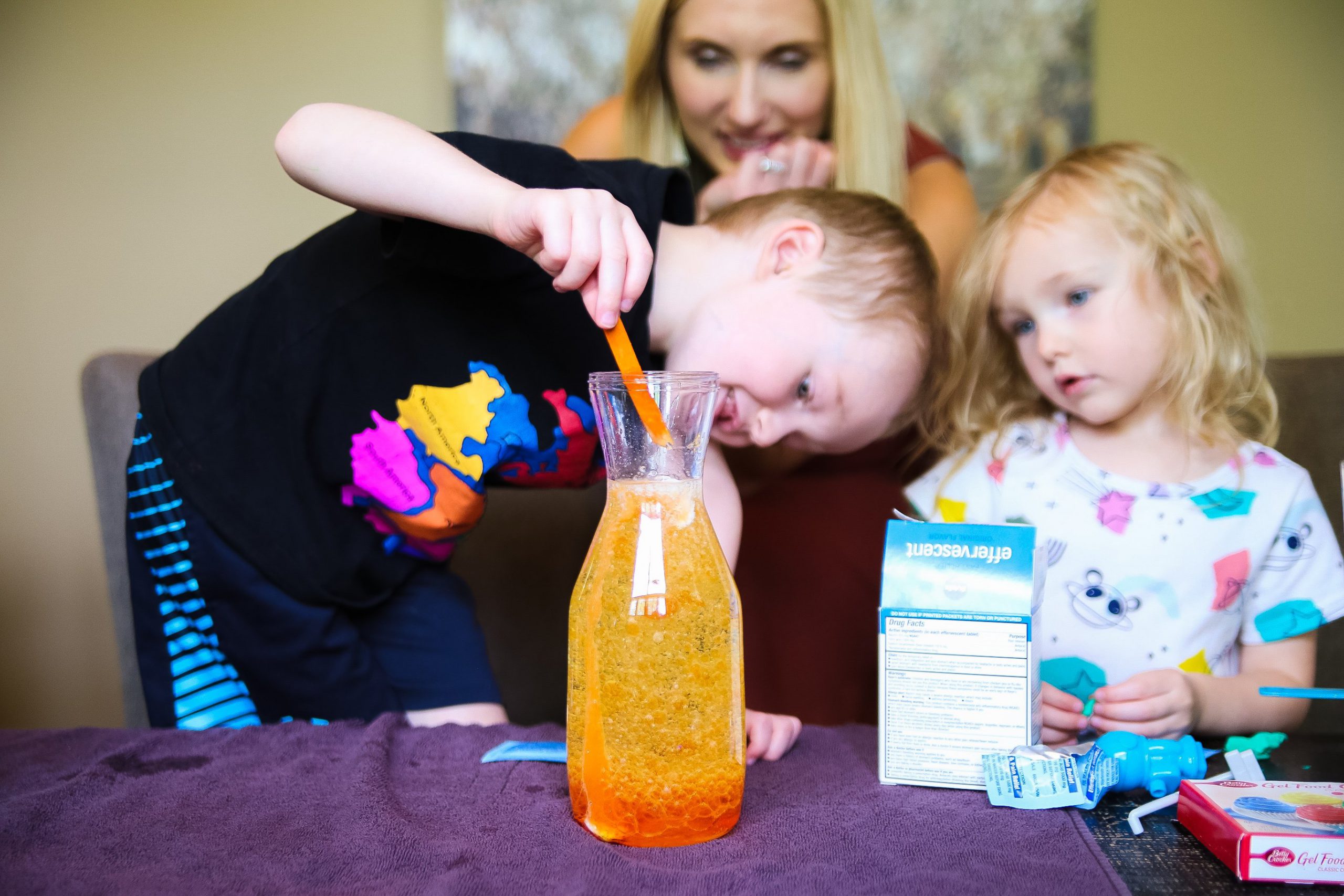Today we have a special guest post from a local Birmingham mother, Marjorie. I met Marjorie shortly before the pandemic hit and really enjoyed getting to know her. We both have 2 kiddos, the bigs are both on the spectrum and in kindergarten, while our littles are only a month apart in age.
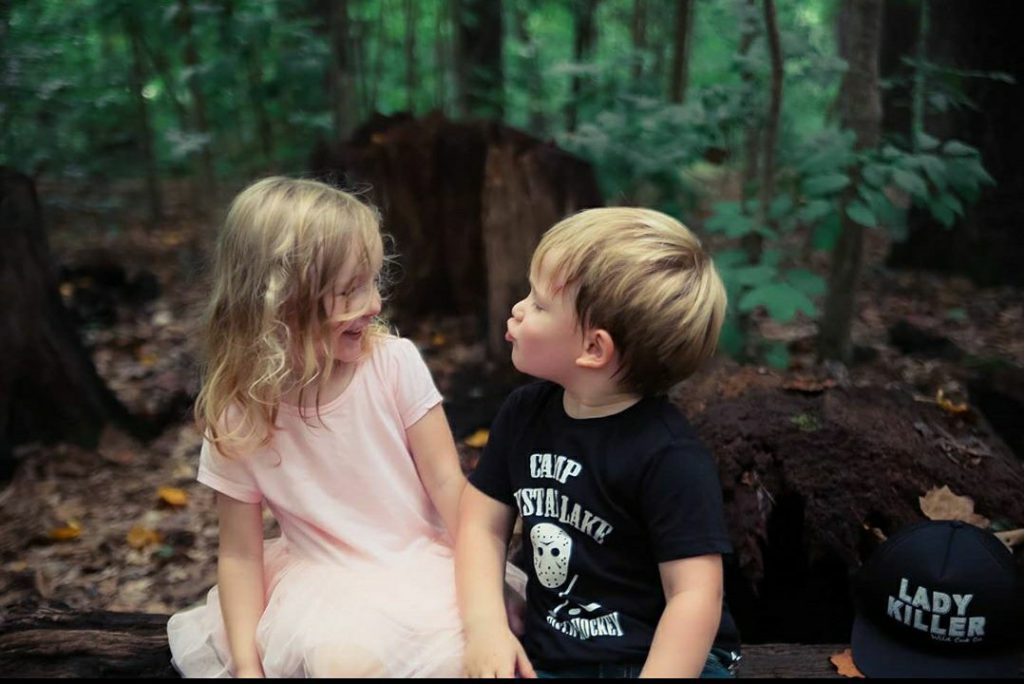
It’s nice to have another mom to talk to, especially a local one, who has a child with similar issues the same age. The thing is, even though our boys have similar issues, they deal with them different ways. Hence why Autism is called a spectrum.
This year, while I decided Everett actually needed to be in school to thrive, Marjorie made the opposite decision. I felt like it’s a decision a lot of Autism Moms are faced with, even when there isn’t a global pandemic, and I loved her reasoning behind it. I invited her to write a post for the NSSM blog to help out other mothers in a similar situation. I hope you love it as much as I did!
Buckling In: Why I Chose to
Homeschool My Neurodivergent Child

It started with a preschool teacher’s accusatory finger pointed toward my face and ended with me in tears so heavy I could barely catch my breath. Was it all my fault? I felt like an amateur and a failure as a parent.
We moved from Ohio to Alabama only two months prior. This wasn’t our first cross-country move, but it was certainly the hardest on our 5-year-old son, Connor. Connor is on the autism spectrum, and while he has low-support needs, changes as big as moving to a new state can be incredibly difficult for him. He has “invisible” struggles that are, as I’ve learned, hard for others—even educators—to understand.
We were able to get him a last-minute spot in a public preschool program here in our current nook of greater Birmingham. Connor did very well during his 4-hour per day program—just as he did in Ohio, just as I expected. But likewise, just like in Ohio, he was becoming overloaded due to the complicated expectations of school (this isn’t something we were fully able to grasp at the time, however).
Each afternoon when I would pick him up from preschool, he fell apart. He would hold it together in school, and then when I arrived at pick-up, he would immediately let that composure go. It would, on some days, be a momentous struggle to get him buckled in his car seat. He would kick and run around. He would sometimes throw fits and yell. By this point, I was normally sweating with rising anxiety.
When we would arrive at home a short one-minute drive later, he would let it all go. And I mean all of it. He was back in his safe space. At this time, after school each day, he was having legitimate meltdowns—the kind that depleted all of the energy he had and all of the energy I had. While the meltdowns eventually ended each day, he was often left in a very irritable state for nearly the rest of each evening. He would continuously grab and pull things at home and in public in order to gain input to calm himself. He was easily triggered by seemingly small occurrences. My husband and I were both struggling to handle these behaviors and struggling to find an answer. We weren’t perfect, but we were absolutely trying.
On that day the teacher put her finger in my face, I was already close to my mental breaking point. I politely asked her if she had noticed Connor’s struggles to get into his car seat and I asked her if she had any suggestions to help. To my surprise, she said to me, finger pointed toward my face: “I’m probably going to say this the wrong way, but that’s on you.” I was told that I simply needed “clearer boundaries” for him. She did not see him as struggling because she was blinded by his ability to mask in school.
That might not sound like the most terrible thing to hear, but in that moment, it felt like a huge slap in the face. I was a struggling parent and simply asked for advice. Even after I tried explaining during an IEP meeting what I saw happening (no, clear instructions and a social story were NOT working, per her suggestions), she seemed to completely disregard those thoughts.
The consideration that maybe there was something more going on that she couldn’t see was obviously not something that would be entertained during this meeting. I started to question if I could continue to participate in IEP meetings and continue to have teachers misunderstand me and my child.
Unfortunately, kids like Connor are often misunderstood. Behaving in school and academically advanced? Clearly his after-school behavior is simply a result of a lack of parental boundaries.
Oddly enough, we saw a psychologist during this time period and he was able to witness the meltdowns and behaviors I was seeing. Maybe teachers didn’t believe me, but he saw it. He said, “Marjorie, I need you to know that this is not parenting related. He is struggling with anxiety and impulsivity and overload. This is nothing you are responsible for. I’m glad I got to see it so I can get the full picture.”
“Marjorie, I need you to know that this is not parenting related. He is struggling with anxiety and impulsivity and overload. This is nothing you are responsible for. I’m glad I got to see it so I can get the full picture.”
THIS.
THIS lifted me away from anger. I think I called everyone I knew that day to tell them how validated I felt. I wasn’t a failure. I had a kid who was struggling and now it was time to “buckle in” and figure out how to drive all over again.
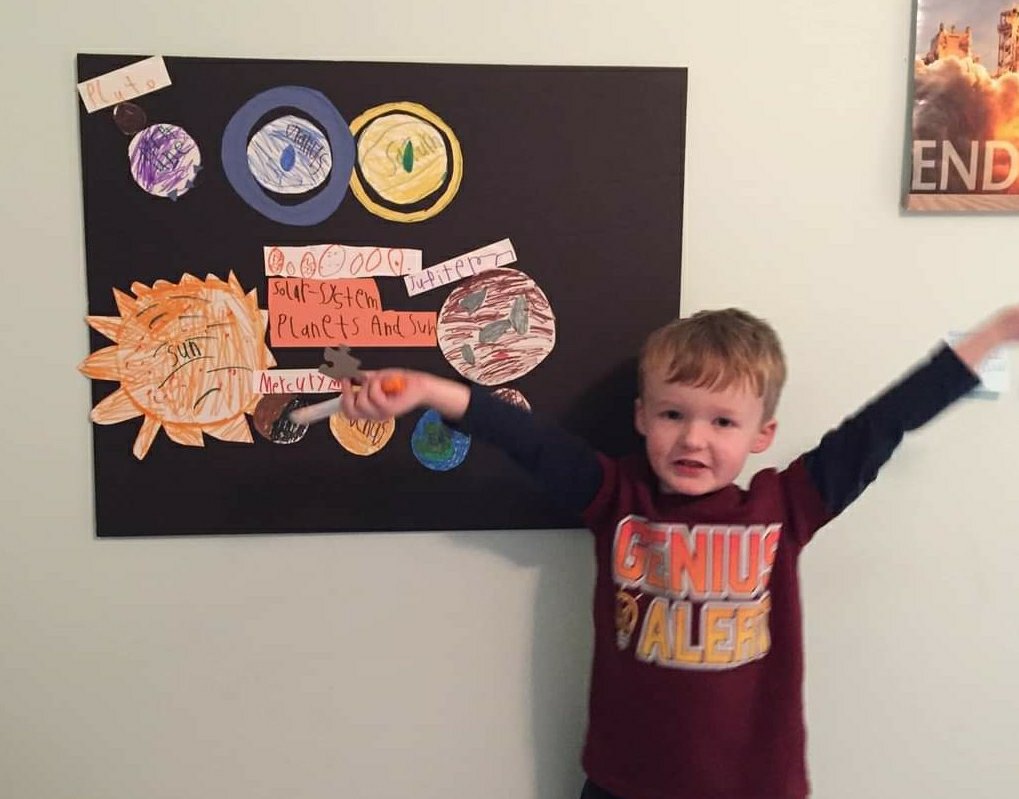
Shortly after, to the shock of everyone around the world, covid-19 happened. And our worlds changed drastically. While many others were struggling, we were, for the first time in years, finding peace and calm and happiness.
This is not to say everything was immediately perfect. But once school abruptly ended, we were able to study our son more closely. We started to figure out his triggers, his limits, and what was overstimulating for him. We noticed that his moods were getting better. He wasn’t as irritable or as easily frustrated. I can’t say it was all due to school, but that was certainly a huge part of his life that had been taken away completely. It only made sense.
We’re now starting to see and understand that Connor “masks” in some situations like school and then lets go of that mask when he’s no longer forced in that situation, or when he just can’t take it anymore. We have since witnessed this in other circumstances (after long outings or especially overwhelming environments like restaurants or chaotic playgrounds, for instance).
As the weeks went by, I was able to create the type of peaceful routines I noticed that he needed. I utilized some strategies taught to me in OT. When I noticed him becoming overloaded, I pumped the brakes and allowed him to do things like use his iPad, draw, use materials like play-doh, and just generally unwind. It was starting to work. My husband and I were in true disbelief. He hadn’t had a single meltdown in weeks. He was listening better. He was behaving better. He was connecting more than ever before with his sister and with us.
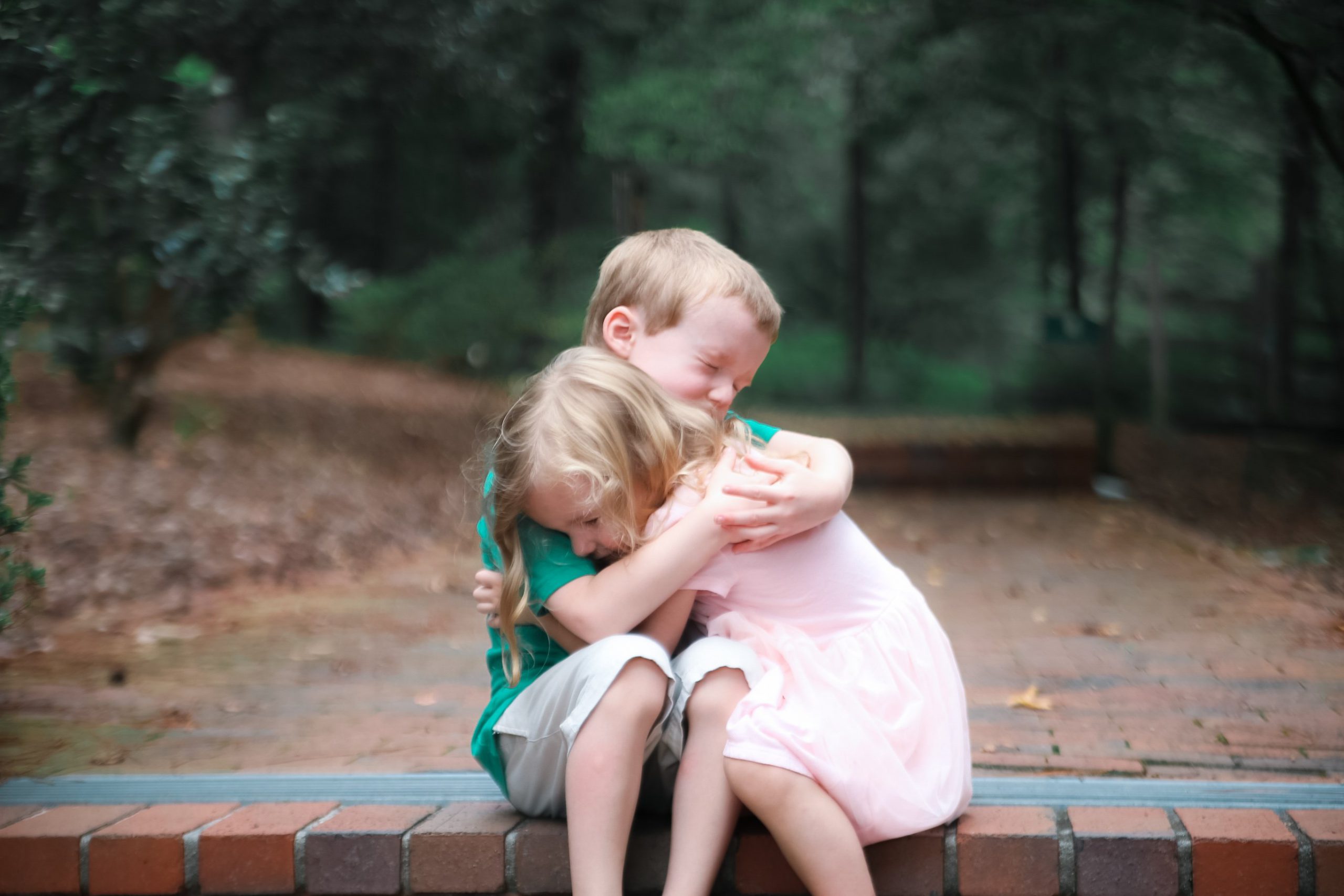
When it came time to make a decision about homeschooling, we decided it was worth giving a shot. After all, at the time it didn’t seem like schools would be a safe place anyway, and I knew the addition of wearing masks would be even more overwhelming for Connor. Not to mention going from a 4-hour preschool day to a 7-hour Kindergarten day.
I consider myself to be a very quietly stubborn person—as in you might not realize how much I will fight or push or work to make something I care about happen. And that’s exactly what I did when it came to homeschooling. I researched and learned along the way. I ended up switching curriculums just two months in, because I found one that better met my son’s needs. I fiddled around with schedules and observed how much time my son could spend learning each subject before needing a sensory break. I was able to fully advance him a grade level (and sometimes more depending on the subject). As a child who is academically strong, he was both struggling in school and not working at his ability levels.
Talk about a less-than-ideal situation.
Now, he gets to work exactly where he’s at and even pursue topics of interest that are not covered in kindergarten—he loves studying countries, cells, computer animation, you name it! He also has more time to participate in wonderful social skills groups, martial arts (which is proving to be an awesome outlet for him), and I am able to help guide and process social interactions with him. For the first time in years, I can take deep breaths again.
I can honestly say that, right now, I rarely have moments where I sit and cry because I’m so overwhelmed and feeling hopeless. And goodness, my child really seems like a happy child, which is all I’ve ever wanted for him. He really isn’t having meltdowns anymore, like, at all. Sure, he certainly doesn’t always behave or listen, he still gets overloaded and irritable sometimes. Life isn’t perfect, and I’m still learning as we go.) But, it’s been five months since schools shut down in March and we’ve only had a few meltdowns here and there. He used to have them everyday, sometimes multiple times a day. His general mood is so much calmer and happier. He follows directions well and even volunteers to help around the house. He does really kind things for everyone in his family, and because he’s happy, we can see how that impacts our entire family. We are all happier. There is a sense of peacefulness in our home that we’ve never experienced. And I’m no longer as anxious when I take him to parks or around other kids. He’s making a lot of progress. I think because we are now in this calmer place, we’ve been able to actually focus on skills like socializing and good behavior.
Before, it just felt like getting through the day was all we could do. I know new challenges may arise (actually, undoubtedly, they will), but I’m ready for them. And through this experience and transition to homeschooling, I’ve learned that I have the tools and ability to figure it out. I have more trust and confidence in myself as a parent. Even on days I feel discouraged, I remind myself that I love my child more than anyone on this planet, and that has to be enough. I will always do what’s best for him and tweak our situation and environment as needed.
Homeschooling was never something I thought I’d do. But I was given a child who is a little “different” and is honestly more amazing than I can put into words. The way his brain works astonishes me. That may mean that he doesn’t fit neatly into the box others expect him to fit into, but that’s the beauty of homeschooling—he doesn’t have to be in a box. Actually, his space and capacity to learn is now wide open. I cannot say with certainty that we will homeschool forever. I have no idea what the future holds.
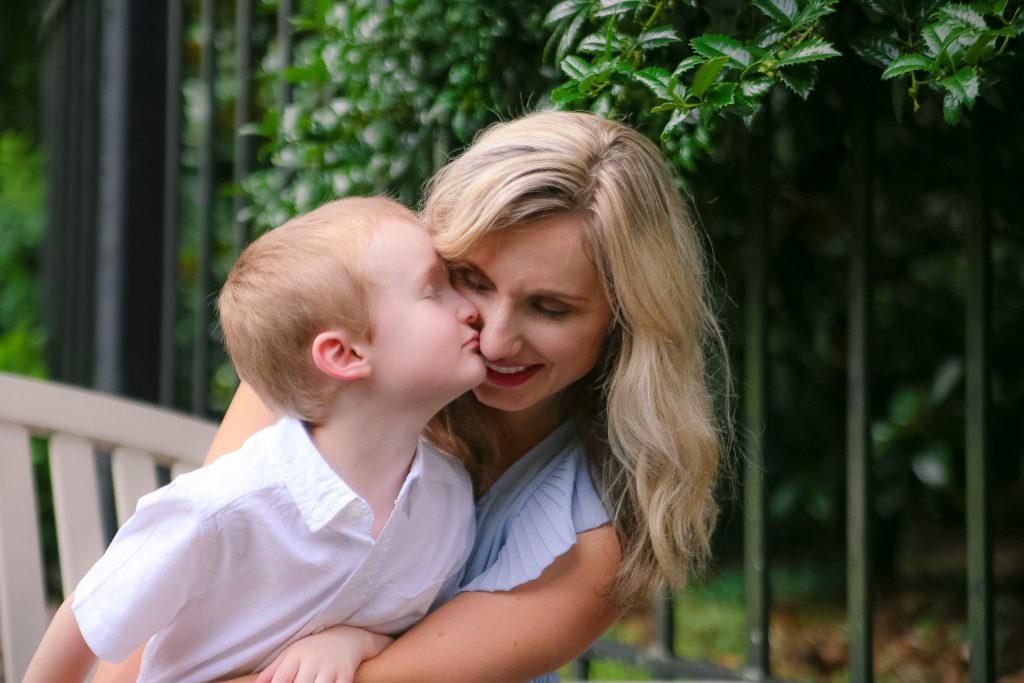
I do know that this is absolutely working for now. Even on days we have setbacks, it’s still so much better. Homeschooling I’m sure will not or does not work for all neurodivergent children, but I do know that it works for some. (Sidenote: there are numerous Facebook groups just for autism and homeschooling!)
Oh, and in case you’re wondering, Connor now gets in his car seat for me with no issues. He buckles himself in and it’s no longer a stressful experience. I think it’s safe to say it took a whole lot more than clearer boundaries and a social story attached to the back of my seat.
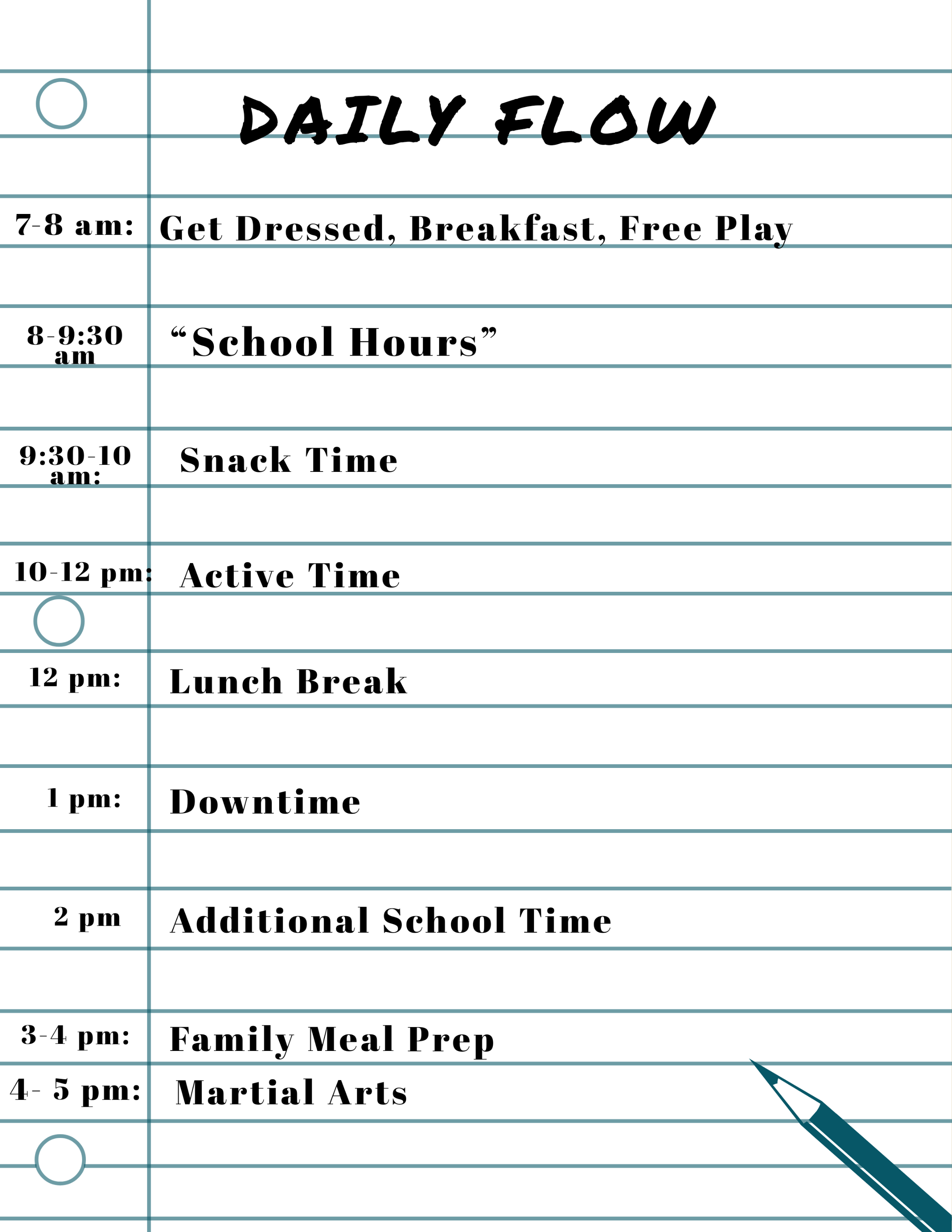
Daily schedule (times vary by the day, but this is a “typical day”)
7-8 am: get dressed (we get dressed even on days we stay home!), breakfast, free play
8-930 am: our typical “school hours” where we cover core subjects, including ELA, math, and handwriting (we use “The Good & The Beautiful” curriculums, primarily). I also have activities from “The Peaceful Preschool” for my 3-year-old daughter.
9:30-10 am: snack time
10-12 pm: active time – we like (have to!) to get out of the house, so usually this means a playground, a visit to the science center, a playdate with friends, etc.
12 pm: lunch out or at home
1 pm: usually our “down time,” which can mean anything from a little bit of iPad time, sensory bin play, doodling with art supplies, etc.
2 pm: This is when we often do other subjects, like science and social studies. We do science experiments (a favorite!), read books on social studies topics, art projects, etc.
3-4 pm: I try to cook most days and include the kids! So we are typically getting things prepped and cooked for dinner at this time.
4-5 pm: Connor just started taking martial arts classes, so usually this is the time we are heading there or participating in martial arts



